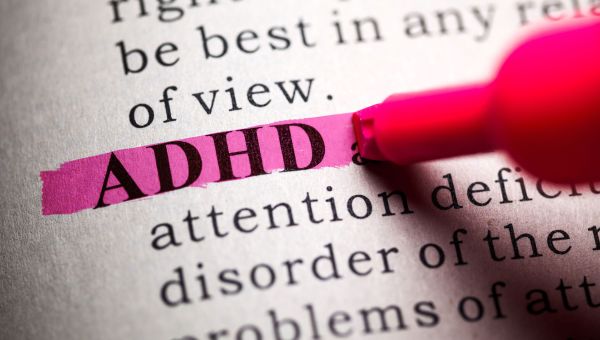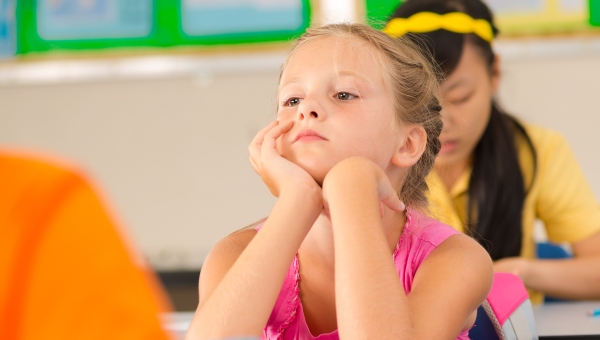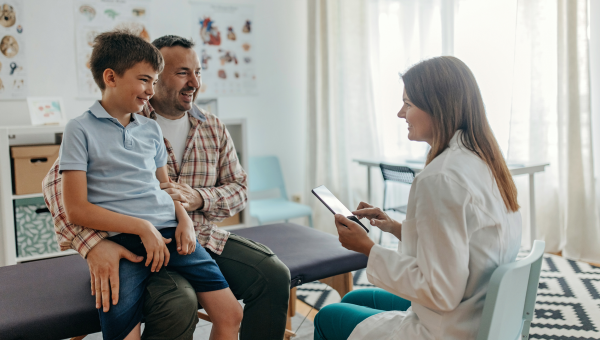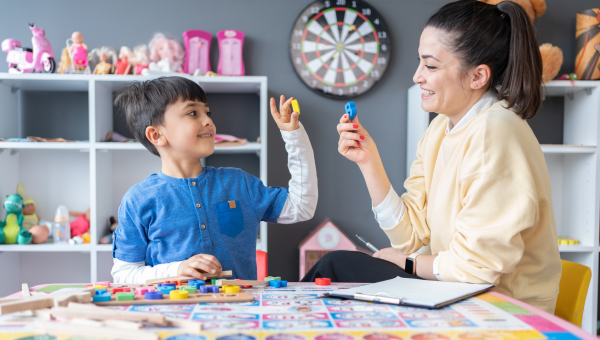6 ADHD facts for parents to know
Learn the essentials of attention-deficit/hyperactivity disorder so you can help your child thrive.
Updated on July 18, 2025

Attention-deficit/hyperactivity disorder (ADHD) is a common mental health condition that begins in childhood and can continue through adulthood. While there is no single known cause of the disorder, many experts believe that genetics play a significant role. Other potential risk factors for ADHD include smoking or drinking during pregnancy, exposure to lead or other toxins, and birth complications.
ADHD has no cure. But children can receive treatment and services to help manage issues like hyperactivity and impulsivity. Since parents and caregivers play an important role in this treatment, it’s important they understand the essentials of the condition. Here’s what to know.

There are three main types
There are three basic types of ADHD:
Inattentive: Children who are diagnosed as inattentive tend to struggle with concentration, are easily distracted, and have trouble following instructions.
Hyperactive-impulsive: Those diagnosed as hyperactive-impulsive are predominantly fidgety, find it difficult to sit still, talk excessively, and frequently interrupt others.
Combined: For a child with a combination of the two, symptoms of inattentiveness and hyperactivity-impulsivity are both present.

It affects both boys and girls
It’s not unusual for young children to be somewhat distracted and impetuous. But kids with ADHD experience behaviors that are more severe, occur more frequently, and interfere with their social skills and academic performance.
ADHD tends to be more apparent in boys, who receive diagnosis and treatment more frequently than girls. That’s because boys with ADHD are prone to disruption, while girls are commonly inattentive. Mustafa Pirzada, MD, a psychiatrist in Boca Raton, Florida, notes that poor grades often prompt parents of girls to explore the possibility of ADHD.

An accurate diagnosis is possible
ADHD is diagnosed using official DSM-5 criteria, which is divided into inattention and hyperactivity. For children age 16 and younger to receive an ADHD diagnosis, their symptoms must:
- Have been present before age 12
- Have been present for at least six months
- Interfere with school or work function
- Be present in at least two different settings, “usually at home and in school,” says Pirzada
- Not arise from another mental health issue, such as anxiety or a mood disorder
If you suspect your child has ADHD, you may want to start by speaking with a healthcare provider (HCP) who specializes in treating the condition. It’s also wise to have your child evaluated by a mental health professional, such as a psychologist or psychiatrist.

There are treatments that work
While there isn’t a cure, ADHD can be treated with medication, therapy, or a combination of the two. Pirzada suggests behavioral modification as a first line of treatment. It can teach a child skills such as organizing schoolwork and learning to control impulsive behavior. Pirzada says if this type of therapy isn’t enough, parents should consult with an HCP to consider medication.
While some drugs have adverse effects, like decreased appetite and trouble sleeping, it’s important to weigh the side effects against the possible improvements in schoolwork and social relationships for a struggling child.

School can be challenging
Children with ADHD often have problems in school, and those issues can be significant. A child may be disorganized and prone to messy backpacks, lost books, and forgotten homework. Kids who are inattentive can find it very difficult to focus on lessons in the classroom. They may get in trouble frequently for fidgeting or being disruptive in class.
Once your child is diagnosed, it’s important to assemble a team at their school. Partner with their primary teacher and bring in others, like the school psychologist, to help create a plan for your child to succeed academically. Students diagnosed with ADHD may be entitled to special classroom accommodations, such as taking breaks or extra help.
It’s important to learn about your child’s educational rights and act as an advocate to ensure your child receives the services to which they’re entitled. These services may include an Individualized Education Plan or Section 504 Plan.

Parental support helps
Caring for a child with ADHD can have its challenges. Parent skills training, where parents learn techniques to encourage positive behaviors and redirect inappropriate ones, can make home life easier. An ADHD support group can be another source of information and emotional support for harried parents. Check CHADD for meetings in your area.

National Institute of Mental Health. Attention-Deficit/Hyperactivity Disorder: What You Need to Know. 2024.
Centers for Disease Control and Prevention. Attention-Deficit/Hyperactivity Disorder: About Attention-Deficit/Hyperactivity Disorder. October 23, 2024.
National Institute of Mental Health. Attention-Deficit/Hyperactivity Disorder (ADHD). December 2024.
Cleveland Clinic. How Are ADHD Symptoms Different in Boys and Girls? January 10, 2024.
Centers for Disease Control and Prevention. Attention-Deficit/Hyperactivity Disorder: Diagnosing ADHD. October 3, 2024.
Children and Adults with Attention-Deficit/Hyperactivity Disorder (CHADD). Parenting a Child with ADHD. Accessed July 18, 2025.
Children and Adults with Attention-Deficit/Hyperactivity Disorder (CHADD). Overview. Accessed July 18, 2025.
Centers for Disease Control and Prevention. Attention-Deficit/Hyperactivity Disorder: ADHD in the Classroom: Helping Children Succeed in School. October 22, 2024.
More On


video

article


video


video


video
